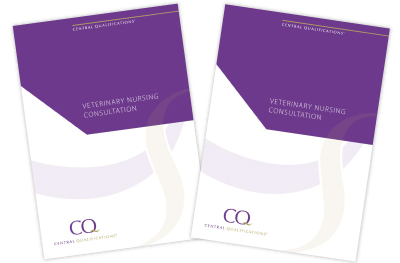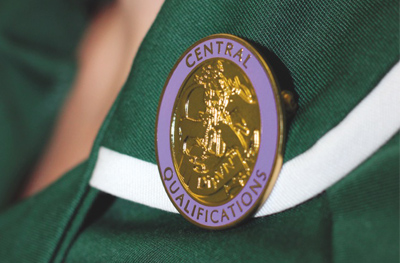CQ launches new Diploma in Veterinary Nursing
New and improved DipVN™ follows extended consultation
"We are delighted that this consultation period has enabled us to produce qualifications which are what the profession really wants" - CQ director Jacqui Garrett.
Veterinary surgeons, veterinary nurses and other practice members were asked to comment on what worked well in the current format and where improvements could be made - not just for students, but for colleagues and employers too.
CQ said it was "overwhelmed" by the positive responses from professionals. One clinical coach said: "Students that qualify under the Diploma seem to excel both practically and academically," while a practice principal stated that graduates are "excellent nurses with great empathy towards pets and clients".
The new and improved DipVN™ represents the first significant change in the VN qualification for eight years. It provides a unique opportunity for student veterinary nurses to choose their level of study, with the introduction of a Level 4 option in addition to the updated Level 3 DipVN™.
Both qualifications provide the content to enable students to develop the knowledge, skills and confidence they need to be successful veterinary nurses. Level 4 allows those who wish to stretch themselves further the opportunity to study some areas in greater depth, and also provides new content on behaviour and evidence-based veterinary medicine, both of which are increasingly important to veterinary nurses in practice.
The new qualifications have been revised to ensure repetition between subject areas is minimised, whilst maintaining knowledge and skills. The small animal and equine qualifications are now separate.
New content has been added to reflect the views of the the profession and the modern-day veterinary nurse - including microchip implantation, dentistry and digital imaging - whilst outdated topics have been removed.
The Central Skills Log (CSL), CQ's electronic portfolio and communication tool, has been updated. Tasks have been grouped to improve recording for students and clinical coaches. Cross-referencing of skills ensures there is no repetition within the CSL and the new version also incorporates all of the updated day one skills veterinary nurses must complete before registering.
The new qualifications will be available next year and feedback has already been positive. CQ director Jacqui Garrett commented: "We are delighted that this consultation period has enabled us to produce qualifications which are what the profession really wants. It is important to us at CQ that we are constantly reviewing our qualifications to ensure we are always up to date and reflecting best practice."
For more information on the new qualifications and how to become a CQ approved training centre email enquiries@cqual.org.

The new and improved DipVN™ has been launched following an extended consultation with the profession.

Student veterinary nurses will be able to choose their level of study when the new qualfications become available next year.



 The RCVS has announced a new version of its 1CPD mobile app, with enhanced features for veterinary surgeons and veterinary nurses to record their continuing professional development.
The RCVS has announced a new version of its 1CPD mobile app, with enhanced features for veterinary surgeons and veterinary nurses to record their continuing professional development.